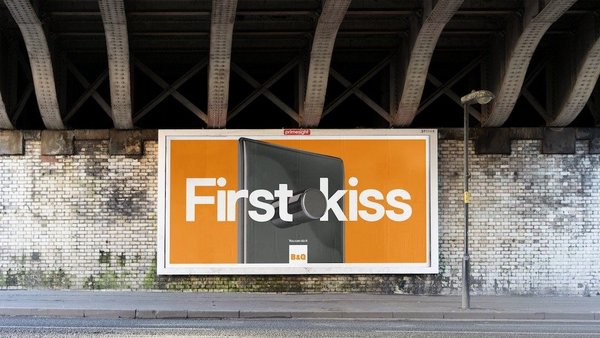Insight & strategy
Why Oatly spammed the world into signing up for an oat-milk newsletter /
Oatly embraced spammy marketing for a sprawling campaign that appeared to be about a newsletter but was actually a brand awareness push
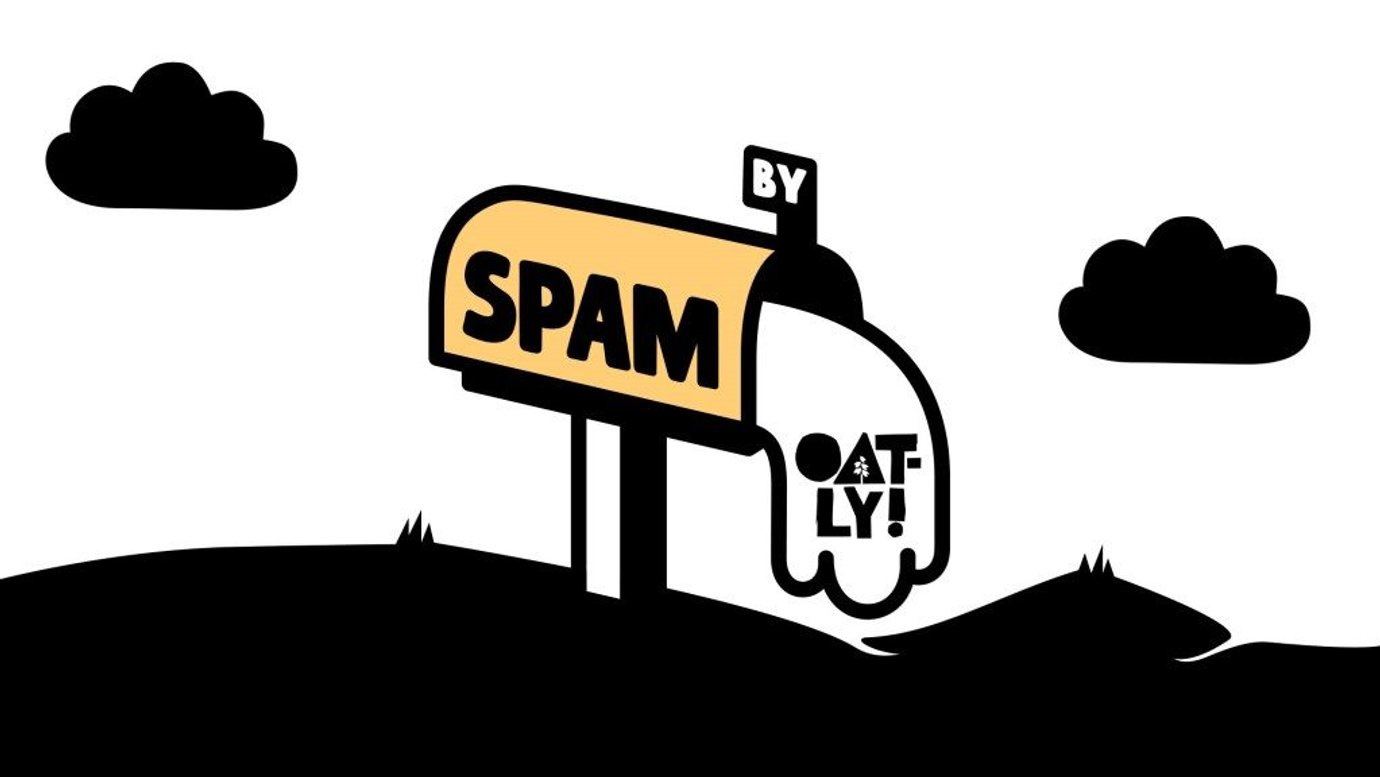
In January 2023, plant-based oat milk brand Oatly launched an online newsletter called Spam by Oatly that arrives in inboxes once a month with information and content from the company.
The monthly newsletter contains absurdist content such as a recipe for a home oat latte written in the form of an eye exam, pets of Oatly employees and even steps for how to add the Oatly web team to your final will and testament.
To convince people to sign up, Oatly engaged in a massive integrated marketing campaign utilising social, digital, OOH and video content to spread the word in cities across the US and Europe.
The campaign – created in-house and developed in-partnership with media agency PHD – included over 4,500 pieces of OOH content across seven countries (mostly targeting locations such as airports and train stations). Many of the executions followed the creative design theme of having pop-ups overlap text to make the copy on the ads difficult to read. One execution saw Oatly taking over a section of Euston Underground Station in London with copy stating: ‘There are probably better ways to promote a newsletter about an oat drink than 5538 pop ups. Well, too late.’ Oatly also gave out free samples of Oatly at various locations and paid a sign flipper to twirl a sign that said ‘free oat drink’.
On TikTok, Oatly created an near five-minute video of a milk carton being crushed by a hydraulic press – except that the milk is only crushed for 20 seconds before intrusive pop-ups take over along with robotic voiceover about the greatness of Oatly’s spam email marketing campaign.
Oatly reportedly directed the campaign internally too, taking over all of its employees computers and office screens at once for a mass simultaneous spamming effort that said, ‘Should you have to put up with spam even on your computer? Apparently, yes.’

In February, all of the campaign’s touchpoints were catalogued within a long advertorial thread in partnership with Reddit’s in-house agency KarmaLab. The Reddit post was written in a tongue-in-cheek style of ‘teaching’ people the best practices on how to create a mass OOH advertising campaign to promote a newsletter, with the comments section left open for people to share their opinions of the content.
To discover more about this cheekily multi-faceted marketing campaign, Contagious spoke with Kevin Lynch, creative director at Oatly, and Matthew Gerrard, senior creative strategist EMEA at Reddit KarmaLab. They shared that:
- Oatly doesn’t issue traditional briefs, the brand instead has an ‘always on’ approach towards raising awareness of plant-based alternatives. Its marketing efforts aim to be unexpected, humorous and attention grabbing – in essence, trying to act more human and less like a brand
- Although Spam by Oatly may seem a bit ridiculous and expensive in the context of driving sign ups for its newsletter, the campaign is really acting as a brand awareness campaign designed to promote Oatly products and flex its unique humorous tone of voice
- Despite the campaign name, Oatly believes that its newsletter email is one of the brand’s most genuine and ‘least-spammy’ marketing avenues
- Reddit KarmaLab typically suggests that brands shouldn’t allow comments on Reddit Megaposts – advice Oatly ignored. Although there were many negative responses, the brand believes that it created one of the biggest ever online discussions around plant-based milk and aligns with the brand’s belief that it would rather be hated than be ignored
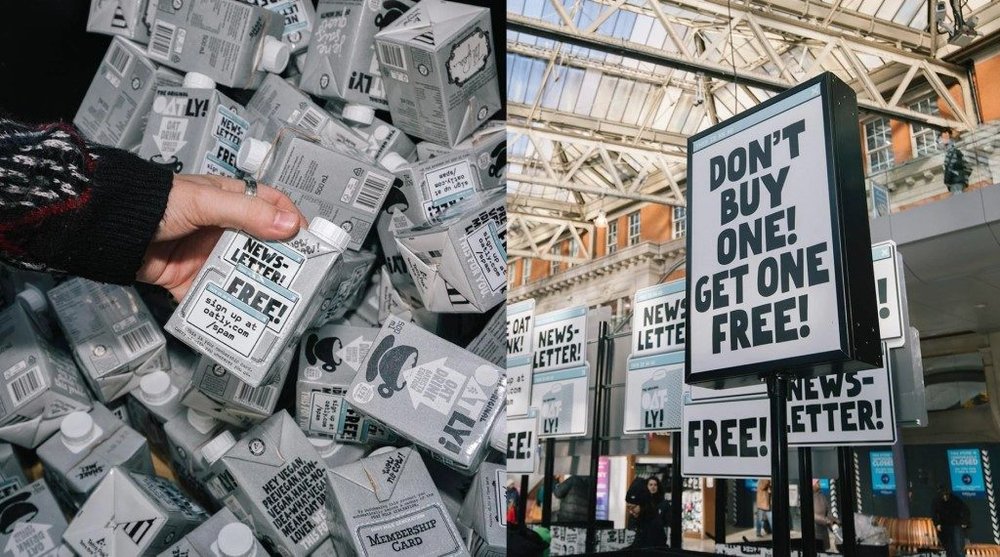
How has the Oatly brand evolved over the last five years?
Kevin Lynch: Oatly is one of the world’s most distinctive brands, which is shocking considering it’s an oat milk. The company was launched in the mid-1990s and followed a predictable, rule-following path of an FMCG until Toni Petersson arrived as CEO in 2012, bringing along his friend and co-conspirator, John Schoolcraft, to serve as CCO. Together, they reimagined the company, shifting it from a food processing brand to a lifestyle brand – one that evokes fun, humour and, most importantly, an ambition to bring change and transparency to the world’s food system.
Kevin Lynch, Oatly
Who is Oatly’s target audience?
Lynch: Oatly’s audience is… let’s call them people who are ‘planet–aware’. They know that a shift from dairy to plant-based is easier on the Earth’s natural resources, and they want to be part of that positive change. This has remained consistent, but what has changed is the mindset. Over the last five years, there’s been a continued growth in awareness of climate change and our role in that change. This conversation has only helped the world of plant-based products.
Who are Oatly’s key competitors?
Lynch: Our key competitor is the same as the planet’s: dairy. The dairy industry has spent 100+ years embedding itself in the culture and laws that guide our food systems, all while doing far more damage to our environment than is necessary. Dismantling the bias towards dairy takes time, but it is necessary and beneficial to do so. Our short-term challenge is [therefore] to continue to shift people from dairy to plant-based. That is likely our long-term challenge as well.
Did you issue a brief for the Spam by Oatly campaign?
Lynch: At Oatly, we do not have briefs per se. We have an overarching ambition to raise awareness of Oatly and of the benefits of plant-based products, in whatever way possible – the more unexpected, the better. Secretly, the campaign was actually a brand awareness campaign.
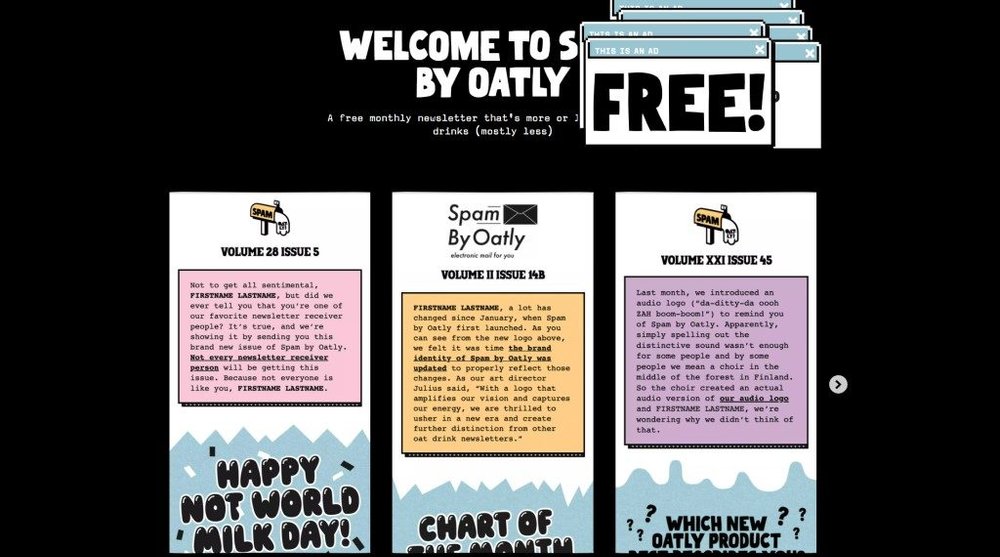
Kevin Lynch, Oatly
Studies have shown that spam emails are pretty much universally hated. Why did you choose to lean into that?
Lynch: We love studies that tell us what we’re doing is wrong. Honestly, I’m getting a dopamine hit just thinking about it. In spite of the name Spam by Oatly, we think the newsletter is actually one of the least-spammy things we do. We’re not buying lists and sending it out unsolicited. These are people who have willingly said, ‘We want to hear more from an oat milk company’, and while we don’t fully understand why, we don’t think they should be denied that pleasure.
How did the Spam By Oatly concept originate?
Lynch: The newsletter began as a project for the Netherlands. We were looking for a channel beyond social media that could create an ongoing dialogue with our biggest advocates – one that allowed us to, as we like to say, ‘act like a human not a brand’. We knew we wanted the newsletter to contain things a brand newsletter is supposed to have – recipes, product news, messages from company leaders, etc. We also knew we were Oatly, so those expected elements had to be presented in an unexpected way. As we began drafting newsletter issues, there was recognition that it was funny enough to maybe deserve a global audience, not just a local one.
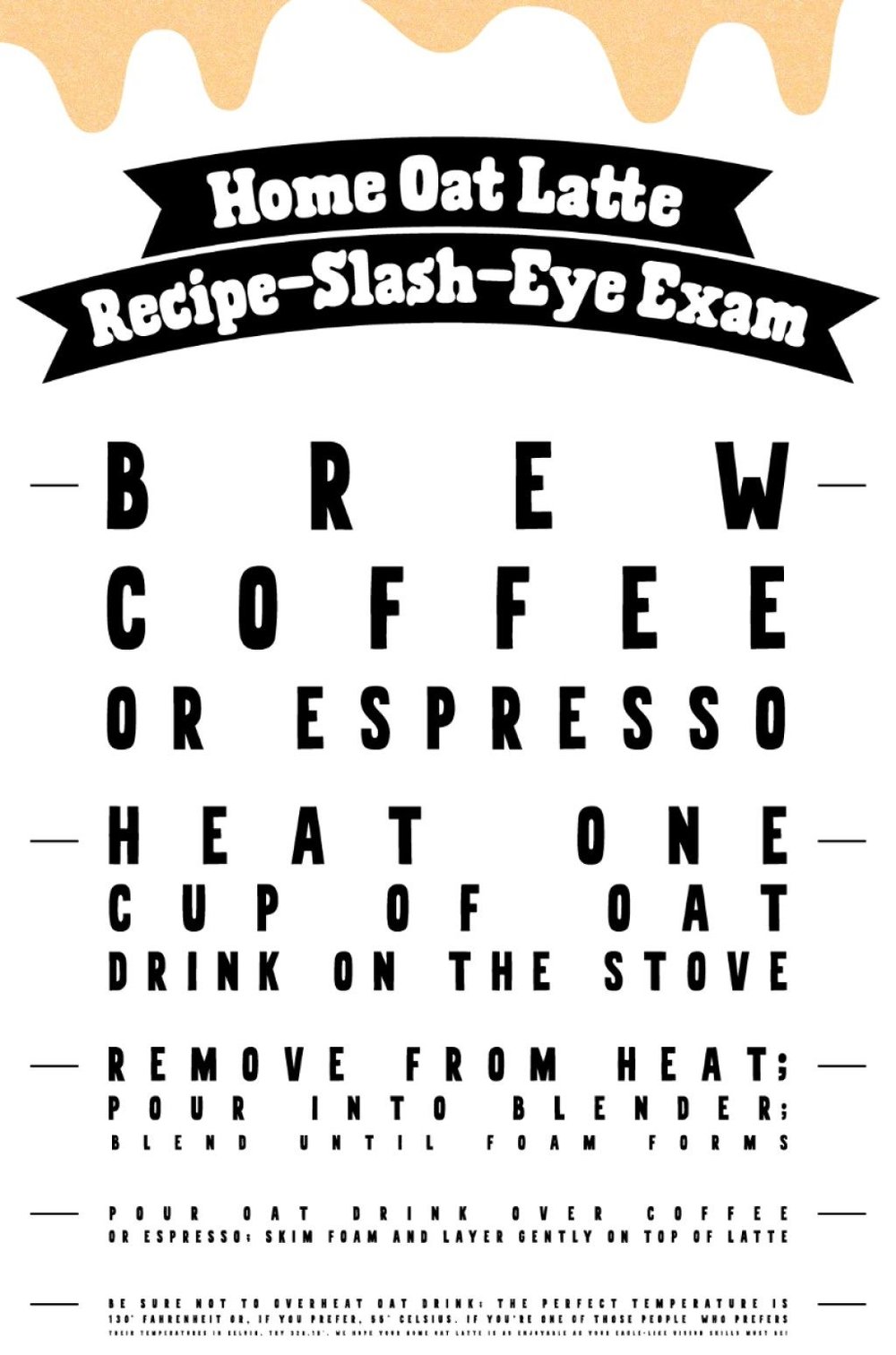
Did you face any challenges while creating the campaign?
Lynch: One of Oatly’s greatest strengths is they’ve created a world that makes doing great work easy. We know the more fucked up something is, the greater likelihood it will be remembered and grow fame for the brand. So at each step of the campaign, we made sure things were as fucked up as they could be.
What kind of content can people find in the newsletter?
Lynch: We did a smoothie recipe using Oatly, but made it so only mathematicians could decipher the proper amount of ingredients. We shared news about products we launched years ago that failed. And we kept saying you’ll hear from our CEO, then we would cut him off, apologise, and say we’ve run out of space. We also misspelled our CEO’s name differently each time we mentioned him, just to give the proofreaders in our audience something to do.
Kevin Lynch, Oatly
How did Oatly map out success?
Lynch: We have an overarching ambition to raise awareness of Oatly and of the benefits of plant-based products, in whatever way possible. We don’t create KPIs for each individual effort. Measurements should be destination signs, not mile markers. We believe everything we do helps sell Oatly, whether we say ’Buy Oatly’ or ’Hey, are you a mathematician? If so, have we got a smoothie recipe for you!’
Why did you decide to create such an extensive OOH campaign to direct people towards the newsletter?
Lynch: We thought it would be stupid to create a newsletter about an oat milk. We thought it would be even stupider to create a global outdoor campaign about an oat milk newsletter. And by ‘stupider’ we mean funny, unexpected and memorable. Technically, the campaign was about signing up for the newsletter, but it was actually a brand awareness campaign in disguise.
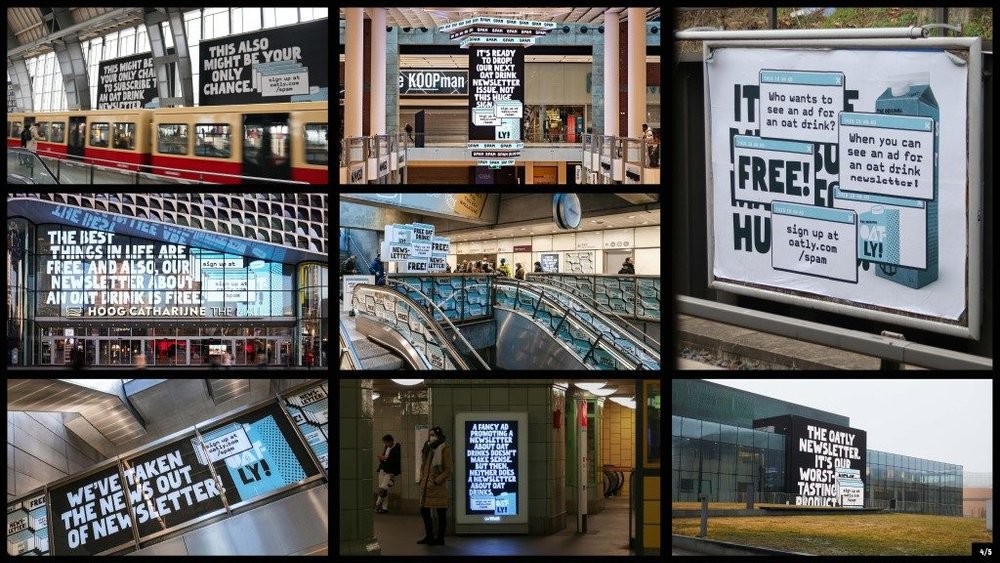
Oatly has a rich history of using OOH to promote the brand. Why is OOH one of Oatly’s preferred media channels?
Lynch: If your ambition is to change the world’s food system, that conversation needs to be part of the public sphere. Bringing up the subject in OOH – a place where everyone sees the message – helps normalise the topic. It’s also helpful for small brands to act like big brands. It helps create brand momentum and a perception of success. As well-known as Oatly has become, size-wise, we’re still a pimple on the ass of the dairy industry.
Kevin Lynch, Oatly
Oatly targeted people in London, Berlin, Stockholm, New York, Amsterdam, Helsinki and Copenhagen. Why these locations?
Lynch: As much as we like doing the unexpected, we thought it probably made sense to support the markets where the brand has a lot of momentum, strong distribution and opportunity for further growth – hence the markets mentioned. Each market featured unique messaging because we know Oatly billboards tend to have a long life online as people share creative long after the media plan ends. That gets more rewarding if they’re all unique.
We’re seeing a lot more OOH ideas being utilised as an extension of a brand’s social strategy. Was that a part of the thinking for this campaign?
Lynch: We’ve never looked at OOH or social in isolation because we know people don’t think that way. If there’s an opportunity to leverage one channel using another (and be funny), we’ll do it.
Why did Oatly create so many touchpoints?
Lynch: The campaign was a combination of mass reach and more targeted efforts, and the media plan reflected that. Creatively, we wanted to make sure each touchpoint was remarkable – so if that’s all you saw, you’d still remember it. The Spam by Oatly campaign was one of those projects that got better at every stage. We wanted to do product samples in a few locations and one of the creatives thought, ‘I know how to make that feel even spammier’, which led to having a sign spinner like you see at those cheesy car washes. Our social team talked about how people only spend a few seconds on a TikTok, so that led to creating a five-minute video for TikTok. Which, oddly, was so popular, we created a nine-minute follow up. But we also wanted to make sure the campaign had enough depth to take people down rabbit holes if they wanted to play even more [and] reward all that curiosity.
In what ways did you reward people’s curiosity?
Lynch: We asked readers for feedback on the newsletter, but we only gave them eight characters to do so. If they wanted more space, they could write to our CEO and request it. They would then get an email back from the CEO with a link they could use to give more feedback than eight characters were allowed. When they clicked on the link, they were taken to a page that gave them nine characters.
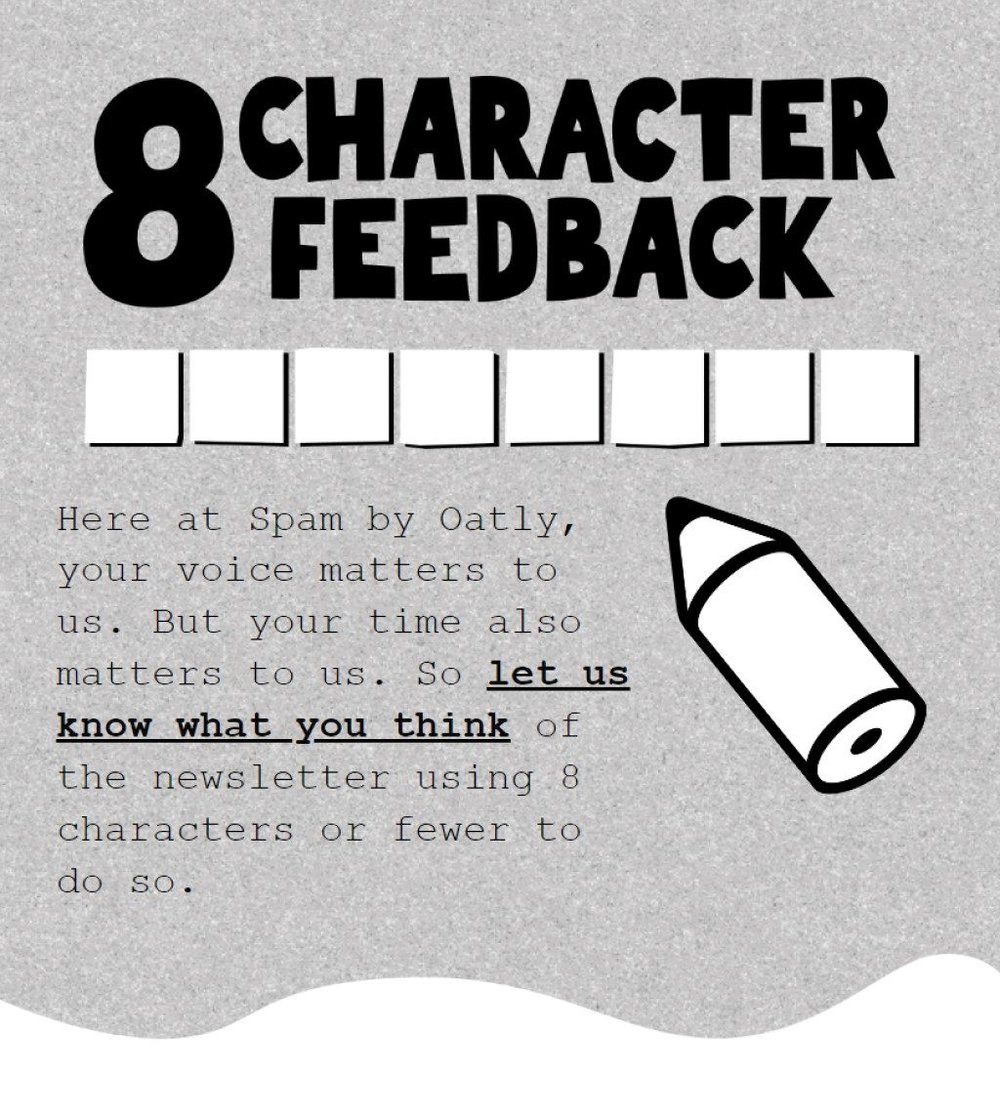
At what stage did Reddit come on board to help Oatly and what did the brand’s brief look like?
Matthew Gerrard: The OOH aspect of the campaign had already run internationally by the time we were brought into the mix. The LinkedIn rumour mill was well underway, with marketing folks speculating that Oatly’s master plan of unleashing the power of ‘big data’ had finally come to [fruition], but in the form of an email newsletter. To their disappointment, it was not about that at all. It never was. Their brief was simply to ‘create noise through nonsense’. [Oatly] wanted to live in people’s heads rent free, and we had a couple of ideas of how that might work well on Reddit.
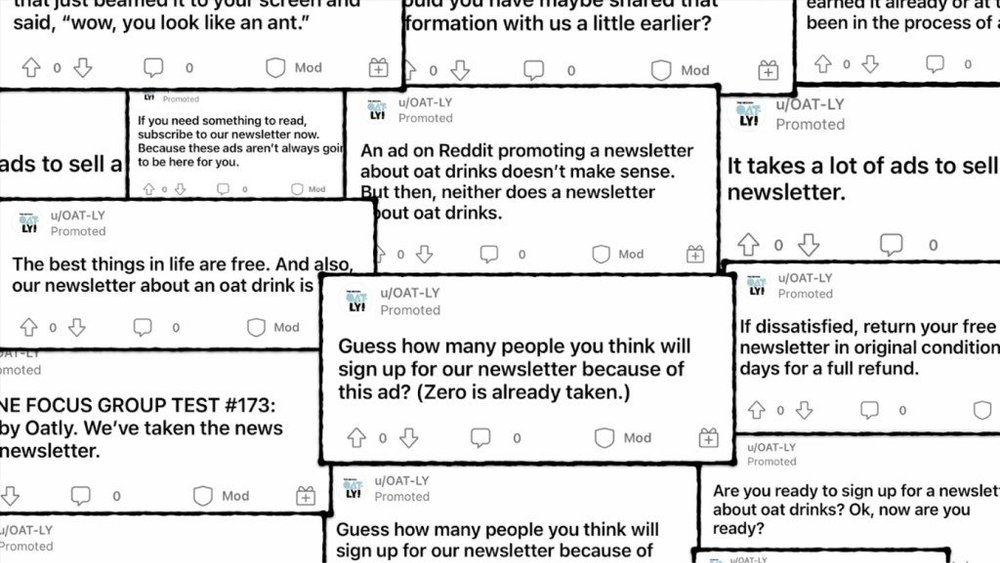
Why did Oatly decide to promote its OOH campaign, which was for an online newsletter, through this specific internet chat board?
Gerrard: Oatly are trying to shift the eating habits of an entire planet. They believe that conversation is what drives change, and we know Reddit to be home to some of the most passionate conversations happening anywhere on the internet. The post in question is what we call a Megapost. It’s a longer form, editorial style post that can house up to 40,000 characters, along with both pictures and videos. Often it can make for a compelling read and satisfy redditors’ appetite to go deep. Interested consumers can dive into the details of a new product or offering, but in this instance, we decided to use this format to educate the entrepreneurial spirits of Reddit on how to best set up a global newsletter.
Matthew Gerrard, Reddit KarmaLab
Was the Megapost the extent of Oatly’s activation of Reddit for the campaign?
Gerrard: The Megapost was just 1% of the Reddit activation. Running alongside 100 unique text only ads, they ranged from: ‘If you are thinking “these ads for Spam by Oatly are literally everywhere” you are literally not totally wrong,’ [and] ‘Not to be over-selly but maybe if you have nothing else to do and you wouldn’t mind one more email a month you could consider subscribing to our newslett… you know what, never mind. It’s fine.’ We wanted to really make it feel like Redditors were almost being subjected to an actual spam campaign, matching their shit-post style antics and (sometimes) laughably unhelpful yet 100% committed executions.
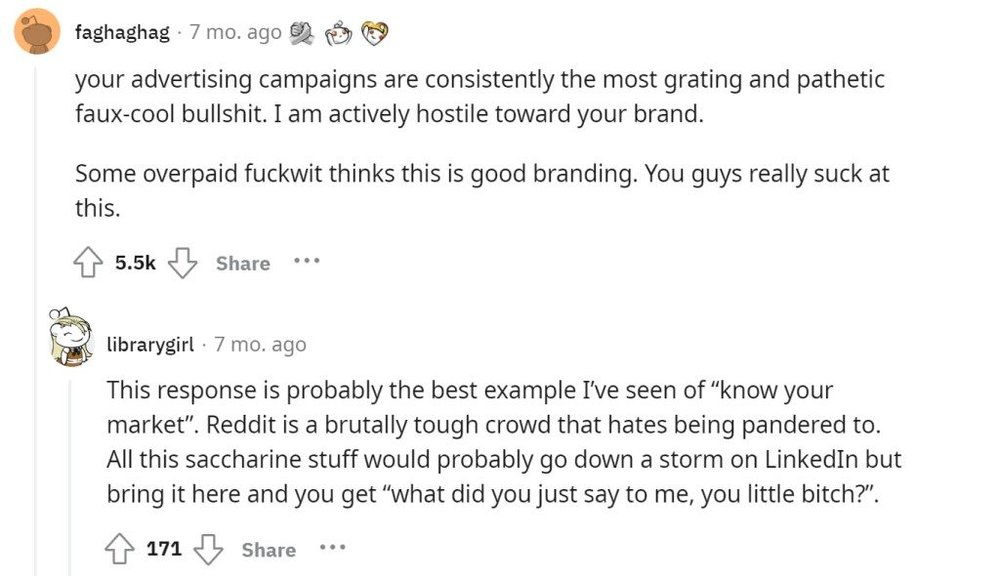
What are your thoughts on some of the more negative feedback? Is this what you wanted when you decided to take the campaign to Reddit?
Gerrard: They’re definitely interesting comments. Though, every single one, both good and bad, were individually approved to go public. Our general guidance here, especially with this type of execution, is to run them with comments turned off. Enter Sarah Sutton, director of global media at Oatly.
Lynch: ‘Leave the comments on!’ declared Sutton. A week later, she declared, ‘What have we done!?!’ The Reddit community was just as vocal as we expected, and we would do it again faster than you could say ‘something that doesn’t take very long to say’. We knew the Reddit community was highly engaged and highly opinionated, which is just the kind of people we love.
Gerrard: Redditors are always willing to offer an opinion, but the thinking was that this could at least be the start of some sort of conversation. And sure, while many of these opinions were overtly negative, Oatly valued this part of the conversation, too. It allowed them to directly address the various inaccuracies and criticisms by driving redditors to their fact-checking website, www.fckoatly.com. They truly believe that establishing conversation in any form is the first step in driving societal change, and this was part of that. You quickly learn that Oatly isn’t one to shy away from a challenge, more like, run straight at it head-first, and on fire. I feel that Kevin put it best when he said, ‘We don't necessarily wish to be hated. But being ignored – now that's something to fear.’
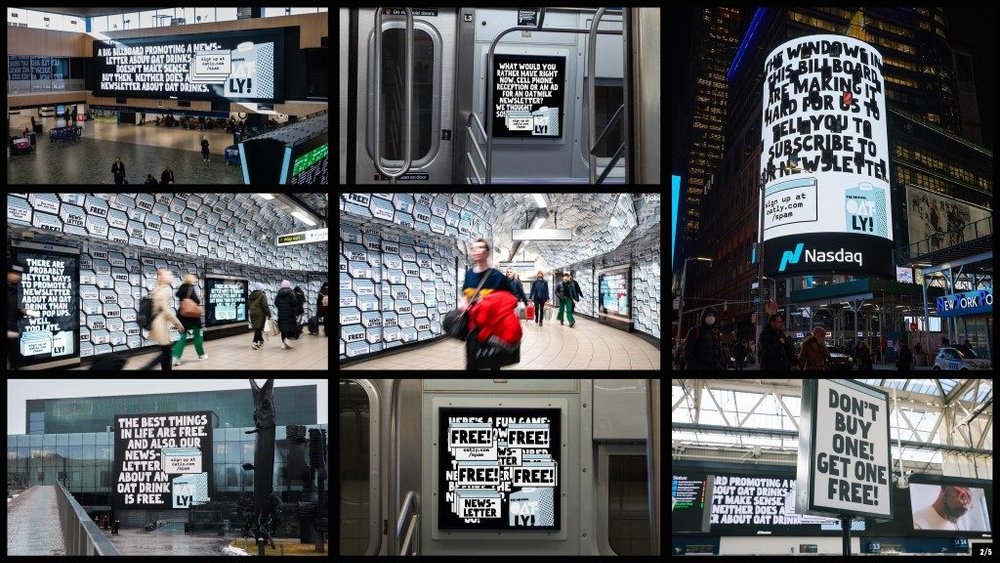
Should brands expect this kind of hostility from the platform’s communities towards their ads?
Gerrard: Absolutely not. But if you poke the bear with a campaign based on internet spam and deliver 100 text-only ads along with a highly visible (ludicrous) editorial, you should expect some unhappy campers. These tactics perfectly align with Oatly’s goals, but this is not a strategy we’d suggest to most other brands. At a cultural level, it feels that cringe content is having a bit of a moment. Radical transparency, forced sarcasm, and niche humour all seem to be driving great results and in this particular case delivered massive engagement and brand visibility – a big win for Oatly.
Does KarmaLab consider this Oatly campaign a success?
Gerrard: The ultimate indicator on whether or not a campaign is a success comes down to our clients being happy. That, and a sustained appetite for wanting to do more courageous work with us. Oatly is not your normal brand, they do things differently and that works perfectly on Reddit. Of course, we do try to tastefully align what brands are trying to achieve with what redditors actually care about, but occasionally you can shift the scales, subvert the norm and trigger an audience into permissionless acceptance.
Want more of the same? /
We don’t just write about best-in-class campaigns, interviews and trends. Our Members also receive access to briefings, online training, webinars, live events and much more.







